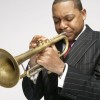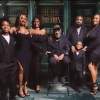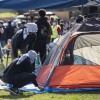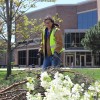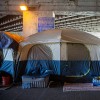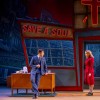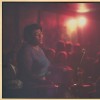

Chicago-native Common on his new book and new relationship – with Jennifer Hudson
At just over 200 pages, the book is split into four sections — food, body, mind and soul — and incorporates health advice from multiple sources.
Chicago-born rapper, actor, author and activist Common hails from the Avalon Park neighborhood on the South Side — and he has proudly represented the community on international stages for decades.
Now, the performer has a new book that emphasizes the importance of taking care of oneself.
In And Then We Rise: A Guide to Loving and Taking Care of Self, Common shares advice on avoiding “foods that don’t do our bodies right,” including some of the soul food and Harold’s Chicken he said he used to frequently eat.
At just over 200 pages, the book is split into four sections — food, body, mind and soul — and incorporates health advice from multiple sources.
Common recently sat down with WBEZ’s Reset to discuss the book, health and his time in Chicago. Here are some highlights from the conversation.
How do you start your mornings? What’s your routine?
“This morning, I started by just looking outside, thanking God for the day … and then I get in some scriptures. They just what I live by. Usually a lot of it’s from the New Testament and some is from different books in the Bible. Then I’ll take a quick meditation, and then I’ll just start taking my vitamins and supplements, and if I have time — this whole thing is about making time for yourself — I go work out. … It’s also just the concept and the philosophy of doing this for yourself. This is not for your job. This is not even for your wife, your husband, your partner, your children. You got to take care of yourself and your own wellness.”
I remember you did that YouTube series with your workouts during the pandemic. Can we call this book an extension of that?
“That period is the reason I wrote this book. I had so many people come up to me when I would travel after these workouts — they were on IG Live — and just say, ‘Man, I was working out with you to help me through the pandemic.’ Also, during the pandemic I had friends calling me, asking me, you know, ‘What should I take?’ ”
How did you become that guy they go to?
“I think they just noticed by observation, the way I was taking care of myself. It was never like I was sitting there trying to preach, ‘Do this’ or ‘Hey, I’m the authority on health and wellness.’ It was more like, okay, they seen it.’ … It was really, truly just an example. I never wanted to be like, ‘Yo, you should be a vegan,’ or, ‘You got to read the Bible and do this.’ It’s about finding what worked for me and living it and if I can shed drop gyms, as we say in hip-hop, then I’m gonna drop in some gyms and I think my friends noticed that.
It was important for me for this book to go to the leaders that I’ve learned from, like integrative Dr. Tracy Rico, who would study Western medicine and also studied Eastern medicine. I would rather you get the information from her because I’ll tell you my journey and what she’s done for me and things I know.”
Was it hard to cut out certain foods?
“It was very hard. And you know, I want to make sure these businesses … know that I’m not like, ‘You’re the worst things that ever happened … I love Harold’s Chicken, I love Leon’s Barbecue, you know, I would put a whole pack of bacon in the microwave, which I know is not good for you. But you know, I just started to notice the difference. And it was because of hip-hop that I even was aware of like, wait, ‘What do you mean vegetarian? … I can’t remember anybody in my circle or at my school or any of my mother’s friends that were vegetarian. We just ate foods that we love and, you know, could afford. And then eventually I wanted to be better. I was at a point in my life where I was like, ‘OK, I’m releasing this music, my first album, I really want to achieve in this field, and what can I do to be better?’ ”
What pushed you to go see a therapist?
“I was going through one of the most difficult breakups I had in life, and I was really trying to figure out what else was out there for me, like musically or creatively. I just was going to acting classes and doing things that were helpful. At one point, ironically enough, I was looking to buy some property and the person who I was buying property from was also a licensed therapist. So while we were looking at these places, I would talk to her about what was going on in my life. She would just listen and give me great responses. She was like, ‘I wish to have a session at some point because I hear where you are. I decided to do it and I felt the change — the shift in me was immediate. … I was like, ‘Oh, I’m understanding what I’m doing to myself right now, like why I’m not getting out of the cycle that I’m in … she was able to identify those things and make it clear to me. … She was able to speak to me in a way that it really resonated, the first time you realize the true meaning of self-care.”
What do you miss most about being in Chicago?
“Chicago’s South Side is what I obviously have come from, but Chicago is such a catalyst and such a big figure in who I am. [The city] always is with me no matter what I do … I lived here ‘till I was 27 years old … What I do miss is just the people, like being around people who just down to solid Earth. Good-natured people, still progressive in their own ways.”
Did your sense of responsibility to Chicago increase or decrease as you’ve gotten older and more established in this industry?
“The more I lived outside of Chicago, the more I feel like I owe it. It’s my duty to bring whatever, like accessing information, love, resources, opportunities. The things that I’ve done that are rooted here in Chicago with the Common Ground Foundation, which has been so impactful for young people on the South Side. … That’s like my way of bringing access to young people right at the school. We started as a charter school on the South Side, less than two miles from where I’m from. So for me to be able to be able to bring that to kids in a school growing up where I grew up, I feel like I’m giving them a chance to start earlier in their own self-empowerment and self-love and bring them back to their communities.”
I want to congratulate you on what sounds like a beautiful relationship with Jennifer Hudson. What makes the two of you work well together?
“She and I both possess that humility and humanity. I love when people treat other human beings with respect, they honor and treat people. It’s not like neither one of us are perfect, like, holier than thou, but it’s the true nature of a person and intention and heart is to treat others with love and respect. Also, just to bring joy and light to people with something that I know is part of my purpose. And just, you know, some things about Chicago realness that I love about Chicago people that she just has.”
This interview has been edited for length and clarity.
And Then We Rise: A Guide to Loving and Taking Care of Self is available now wherever books are sold.
Bianca Cseke is a digital producer at WBEZ. Sasha-Ann Simons is the host of WBEZ’s Reset.
More From
Reset with Sasha-Ann Simons


Chicago-native Common on his new book and new relationship – with Jennifer Hudson
At just over 200 pages, the book is split into four sections — food, body, mind and soul — and incorporates health advice from multiple sources.
Chicago-born rapper, actor, author and activist Common hails from the Avalon Park neighborhood on the South Side — and he has proudly represented the community on international stages for decades.
Now, the performer has a new book that emphasizes the importance of taking care of oneself.
In And Then We Rise: A Guide to Loving and Taking Care of Self, Common shares advice on avoiding “foods that don’t do our bodies right,” including some of the soul food and Harold’s Chicken he said he used to frequently eat.
At just over 200 pages, the book is split into four sections — food, body, mind and soul — and incorporates health advice from multiple sources.
Common recently sat down with WBEZ’s Reset to discuss the book, health and his time in Chicago. Here are some highlights from the conversation.
How do you start your mornings? What’s your routine?
“This morning, I started by just looking outside, thanking God for the day … and then I get in some scriptures. They just what I live by. Usually a lot of it’s from the New Testament and some is from different books in the Bible. Then I’ll take a quick meditation, and then I’ll just start taking my vitamins and supplements, and if I have time — this whole thing is about making time for yourself — I go work out. … It’s also just the concept and the philosophy of doing this for yourself. This is not for your job. This is not even for your wife, your husband, your partner, your children. You got to take care of yourself and your own wellness.”
I remember you did that YouTube series with your workouts during the pandemic. Can we call this book an extension of that?
“That period is the reason I wrote this book. I had so many people come up to me when I would travel after these workouts — they were on IG Live — and just say, ‘Man, I was working out with you to help me through the pandemic.’ Also, during the pandemic I had friends calling me, asking me, you know, ‘What should I take?’ ”
How did you become that guy they go to?
“I think they just noticed by observation, the way I was taking care of myself. It was never like I was sitting there trying to preach, ‘Do this’ or ‘Hey, I’m the authority on health and wellness.’ It was more like, okay, they seen it.’ … It was really, truly just an example. I never wanted to be like, ‘Yo, you should be a vegan,’ or, ‘You got to read the Bible and do this.’ It’s about finding what worked for me and living it and if I can shed drop gyms, as we say in hip-hop, then I’m gonna drop in some gyms and I think my friends noticed that.
It was important for me for this book to go to the leaders that I’ve learned from, like integrative Dr. Tracy Rico, who would study Western medicine and also studied Eastern medicine. I would rather you get the information from her because I’ll tell you my journey and what she’s done for me and things I know.”
Was it hard to cut out certain foods?
“It was very hard. And you know, I want to make sure these businesses … know that I’m not like, ‘You’re the worst things that ever happened … I love Harold’s Chicken, I love Leon’s Barbecue, you know, I would put a whole pack of bacon in the microwave, which I know is not good for you. But you know, I just started to notice the difference. And it was because of hip-hop that I even was aware of like, wait, ‘What do you mean vegetarian? … I can’t remember anybody in my circle or at my school or any of my mother’s friends that were vegetarian. We just ate foods that we love and, you know, could afford. And then eventually I wanted to be better. I was at a point in my life where I was like, ‘OK, I’m releasing this music, my first album, I really want to achieve in this field, and what can I do to be better?’ ”
What pushed you to go see a therapist?
“I was going through one of the most difficult breakups I had in life, and I was really trying to figure out what else was out there for me, like musically or creatively. I just was going to acting classes and doing things that were helpful. At one point, ironically enough, I was looking to buy some property and the person who I was buying property from was also a licensed therapist. So while we were looking at these places, I would talk to her about what was going on in my life. She would just listen and give me great responses. She was like, ‘I wish to have a session at some point because I hear where you are. I decided to do it and I felt the change — the shift in me was immediate. … I was like, ‘Oh, I’m understanding what I’m doing to myself right now, like why I’m not getting out of the cycle that I’m in … she was able to identify those things and make it clear to me. … She was able to speak to me in a way that it really resonated, the first time you realize the true meaning of self-care.”
What do you miss most about being in Chicago?
“Chicago’s South Side is what I obviously have come from, but Chicago is such a catalyst and such a big figure in who I am. [The city] always is with me no matter what I do … I lived here ‘till I was 27 years old … What I do miss is just the people, like being around people who just down to solid Earth. Good-natured people, still progressive in their own ways.”
Did your sense of responsibility to Chicago increase or decrease as you’ve gotten older and more established in this industry?
“The more I lived outside of Chicago, the more I feel like I owe it. It’s my duty to bring whatever, like accessing information, love, resources, opportunities. The things that I’ve done that are rooted here in Chicago with the Common Ground Foundation, which has been so impactful for young people on the South Side. … That’s like my way of bringing access to young people right at the school. We started as a charter school on the South Side, less than two miles from where I’m from. So for me to be able to be able to bring that to kids in a school growing up where I grew up, I feel like I’m giving them a chance to start earlier in their own self-empowerment and self-love and bring them back to their communities.”
I want to congratulate you on what sounds like a beautiful relationship with Jennifer Hudson. What makes the two of you work well together?
“She and I both possess that humility and humanity. I love when people treat other human beings with respect, they honor and treat people. It’s not like neither one of us are perfect, like, holier than thou, but it’s the true nature of a person and intention and heart is to treat others with love and respect. Also, just to bring joy and light to people with something that I know is part of my purpose. And just, you know, some things about Chicago realness that I love about Chicago people that she just has.”
This interview has been edited for length and clarity.
And Then We Rise: A Guide to Loving and Taking Care of Self is available now wherever books are sold.
Bianca Cseke is a digital producer at WBEZ. Sasha-Ann Simons is the host of WBEZ’s Reset.

